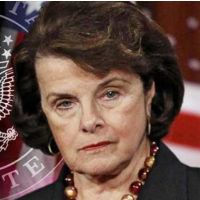Sen. Feinstein Says only Salaried Journalists should be Protected by Shield Law
 Sen. Dianne Feinstein
Sen. Dianne Feinstein
The Supreme Court says that money equals speech, and now some in Washington want to pass a law that only writers being paid a money salary should be considered journalists.
That proposal was made on the floor of the U.S. Senate Thursday by Sen. Dianne Feinstein (D-California) as a way to restrict the scope of a journalist shield law sponsored by Sen. Charles Schumer (D-N.Y.) that was approved by the Senate Judiciary Committee. The push for such a law received new impetus in May as a result of revelations that the Justice Department had secretly seized the phone records of 20 Associated Press reporters and editors for more than two months and had secretly traced the phone calls and emails of a Fox News reporter.
Schumer’s proposed bill—basically a strengthened version of guidelines proposed recently by Attorney General Eric Holder—would protect reporters and news organizations from being forced by subpoenas or court orders to reveal the identities of confidential sources, unless a judge finds probable cause to believe a crime has been committed and the government has exhausted all other alternatives. The bill also requires the Justice Department to notify any reporters it chooses to monitor, but allows officials to delay that notice by 45 days and to ask a judge for no more than an additional 45 days.
The controversy comes over defining who is a journalist and thus entitled to these protections. Schumer’s bill has a definition covering four pages, but the key language defines a journalist as a person “with the primary intent to investigate events and procure material in order to disseminate to the public news or information concerning local, national or international events or other matters of public interest.” Such a person must intend to report and publish the news before obtaining protected information, not after.
But Sen. Feinstein, backed by Sen. Richard Durbin (D-Illinois), wants to limit the definition even more, specifically to prevent the bill from covering organizations like WikiLeaks, which provides an online platform for revealing previously secret documents to the public.
Although Feinstein claimed she was concerned “that the current version of the bill would grant a special privilege to people who aren’t really reporters at all, who have no professional qualifications,” her proposal defines journalists as those who earn salaries regardless of their qualifications.
Thus, under Feinstein’s bill, if Pulitzer Prize winning journalist Seymour Hersh does volunteer work for WikiLeaks, he would not be a journalist, but if Fox News pays Sean Hannity to be on TV, he is. For Feinstein, the issue is money and the likelihood of being in the pay of a corporation, not professionalism.
Sen. Schumer pointed out that such a definition was outdated in the Internet Age. “The world has changed. We’re very careful in this bill to distinguish journalists from those who shouldn’t be protected, WikiLeaks and all those, and we’ve ensured that,” said Schumer. “But there are people who write and do real journalism, in different ways than we’re used to. They should not be excluded from this bill.”
This is the third time in recent history that Congress has considered a shield law for journalists. Although previous bills have failed despite bipartisan support, Schumer said he hoped his bill would get to the Senate floor by the end of the year.
-Matt Bewig
To Learn More:
Senators Spar over Definition of ‘Journalist’ in Seeking to Protect Them (by Kate Irby, McClatchy)
Senate Takes Initial Step toward Media Shield Law (by Henry C. Jackson, Boston Globe)
- Top Stories
- Unusual News
- Where is the Money Going?
- Controversies
- U.S. and the World
- Appointments and Resignations
- Latest News
- Trump Orders ICE and Border Patrol to Kill More Protestors
- Trump Renames National Football League National Trump League
- Trump to Stop Deportations If…
- Trump Denounces World Series
- What If China Invaded the United States?






Comments